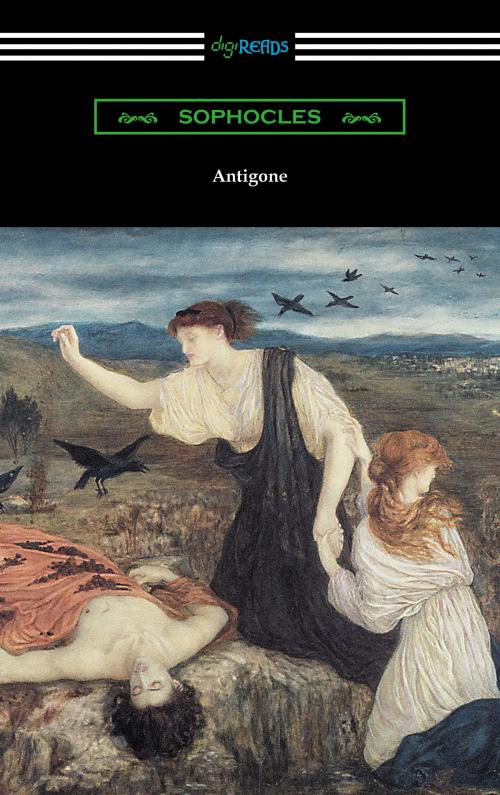Antigone (Translated by E. H. Plumptre with an Introduction by J. Churton Collins)
Nonfiction, Entertainment, Drama, Greek & Roman, Fiction & Literature| Author: | Sophocles | ISBN: | 9781420953459 |
| Publisher: | Neeland Media LLC | Publication: | May 31, 2016 |
| Imprint: | Digireads.com Publishing | Language: | English |
| Author: | Sophocles |
| ISBN: | 9781420953459 |
| Publisher: | Neeland Media LLC |
| Publication: | May 31, 2016 |
| Imprint: | Digireads.com Publishing |
| Language: | English |
“Antigone,” the first Theban play written by Sophocles yet chronologically last in the cycle, is a masterpiece of classical antiquity which examines the conflict between public duty and personal loyalty. Following the banishment of Oedipus, his two sons Eteocles and Polyneices have died leading opposite sides in Thebes’s civil war, fighting each other for the throne. Queen Jocasta’s brother Creon, now the ruler of Thebes, declares that Eteocles will be honored but Polyneices is to be publically shamed by refusing him burial rites. Creon declares that anyone attempting to do so will be put to death. In ancient Greece the refusal of burial rites was one of the most disrespectful acts that could have been shown to a person and their family. Antigone finds herself compelled by familial duty and disregards Creon’s edict by scattering dirt across Polyneices’s corpse. Creon, whose son Haemon is engaged to Antigone, finds himself torn between a personal loyalty to his family and a civic duty to punish Antigone for this crime. One of the greatest dramas from classical antiquity, “Antigone,” along with its Theban counterparts, “Oedipus the King,” and “Oedipus at Colonus,” established Sophocles as one of the most renowned dramatists of his era. This edition follows the translation of E. H. Plumptre and includes an introduction by J. Churton Collins.
“Antigone,” the first Theban play written by Sophocles yet chronologically last in the cycle, is a masterpiece of classical antiquity which examines the conflict between public duty and personal loyalty. Following the banishment of Oedipus, his two sons Eteocles and Polyneices have died leading opposite sides in Thebes’s civil war, fighting each other for the throne. Queen Jocasta’s brother Creon, now the ruler of Thebes, declares that Eteocles will be honored but Polyneices is to be publically shamed by refusing him burial rites. Creon declares that anyone attempting to do so will be put to death. In ancient Greece the refusal of burial rites was one of the most disrespectful acts that could have been shown to a person and their family. Antigone finds herself compelled by familial duty and disregards Creon’s edict by scattering dirt across Polyneices’s corpse. Creon, whose son Haemon is engaged to Antigone, finds himself torn between a personal loyalty to his family and a civic duty to punish Antigone for this crime. One of the greatest dramas from classical antiquity, “Antigone,” along with its Theban counterparts, “Oedipus the King,” and “Oedipus at Colonus,” established Sophocles as one of the most renowned dramatists of his era. This edition follows the translation of E. H. Plumptre and includes an introduction by J. Churton Collins.













![Cover of the book Oedipus Rex (Oedipus the King) [Translated by E. H. Plumptre with an Introduction by John Williams White] by Sophocles](https://www.kuoky.com/images/2016/may/300x300/9781420953473-WJXP_300x.jpg)

